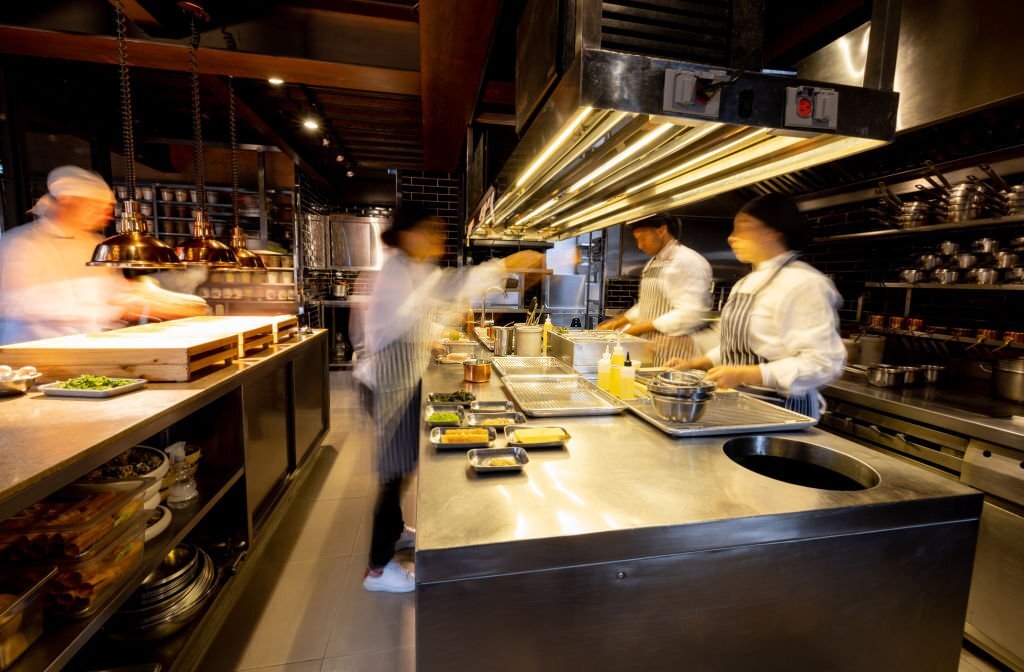As a chef, you’ve honed your skills and expertise in the kitchen, by working in hotels and restaurants to create delicious meals and provide excellent dining experiences.
There are many reasons why a chef might want to move from the commercial side of hospitality to freelance work.
One common reason is the desire to have more control over their work and schedule. Working as a freelance chef allows you to set your own hours and choose the projects that align with your goals and interests.
This can be appealing for chefs who want to be well-versed in a variety of cuisines and cooking styles, as freelance work allows for greater flexibility and the opportunity to take on a wide range of projects.
From my personal experience, I found that the demanding hours in the traditional hospitality setting were taking a toll on my mental and physical health. I developed a love-hate relationship with the demanding nature of the job.
Being a freelance chef taught me that there are a variety of ways you can use your culinary skills and experience, such as teaching others how to cook or providing restaurant consultation services.
In this guide, you’ll learn how to transition from the commercial side of being a chef to freelancing.

3 steps to transitioning from commercial chef to freelance
In this guide, I’ll walk you through the three key steps to successfully transitioning from a commercial chef to a freelance chef.
In the first step, I’ll help you assess your skills and interests, so you can determine what kind of freelance work is the best fit for you.
Next, I’ll guide you through the process of building your portfolio and network, so you can showcase your skills and start finding freelance opportunities.
Finally, I’ll help you pursue those opportunities, so you can start your freelance culinary career with confidence. So, let’s get started:
#1 Assess your skills and interests
Before you begin your transition to freelancing, it’s important to assess your skills and interests.
What are you most passionate about in the culinary world?
There are many things that people in the culinary industry are passionate about, including:
- Creating delicious and innovative dishes: Many chefs are passionate about creating new and exciting flavours and combinations, and are always looking for ways to push the boundaries of traditional cuisine.
- Using local and seasonal ingredients: Some chefs are passionate about using fresh, locally-sourced ingredients to create dishes that are both flavorful and sustainable.
- Perfecting classic techniques: Other chefs are passionate about honing their skills and perfecting classic techniques, whether it’s mastering the art of pastry-making or perfecting the perfect sear on a steak.
- Experimenting with different cuisines: Some chefs are drawn to the diversity and variety of flavours and techniques found in different cuisines, and enjoy experimenting with different ingredients and techniques.
- Educating others about food: Many chefs are passionate about sharing their knowledge and love of food with others, whether through cooking classes, culinary demonstrations, or writing about food.
- Running a successful restaurant: For some chefs, the ultimate goal is to run their own successful restaurant, where they can create their own menus and oversee every aspect of the dining experience.
By identifying your strengths and interests, you can better focus your efforts and choose freelance opportunities that align with your goals.
Here are a few tips that may help you find what you’re passionate about in the food industry:
- One of the best ways to discover your passions is to try new things and see what interests you. This means trying different cuisines, experimenting with different cooking techniques, or trying out different roles within the food industry.
- Think about the experiences you’ve had in the food industry and what you enjoyed most. Did you love creating new dishes or working with specific ingredients? Did you enjoy teaching others about food or working in a fast-paced kitchen environment?
- Seek out advice and insights from others in the food industry. Ask them about their experiences and what they’re passionate about, and see if any of their passions resonate with you.
- Think about your strengths and interests outside of the food industry. Do you have a particular skill or talent that could be applied to the food industry? Are there certain topics or issues that you’re particularly interested in or passionate about?
- Don’t be afraid to try out different roles and experiences within the food industry. Whether it’s working as a chef, a food writer, or a culinary educator, there are many different paths you can take. Keep an open mind and be willing to try new things to see what you enjoy most.

#2 Build your portfolio and network
Most business opportunities will come from your network circle, so invest in it. Attend industry events and join relevant organisations to build relationships and make connections. Your portfolio and network of contacts are crucial to your success.
Consider creating a website or online portfolio that showcases your work, including any professional certifications or training you have received.
You can also use social media platforms to showcase your culinary creations and engage with potential clients, for example Mark Weins – a travel food blogger who showcases the diverse cuisines of the world through his YouTube channel.
Another example is Livhuwani Tshikhudo, a food photographer based in Brinklow, England, who uses her social media platforms to showcase her culinary talents while sharing tips and tricks of the trade.
Here are a few major events that food professionals in South Africa can attend to network with others in the industry:
- Africa’s Food, Drink & Hospitality Trade Expo – This annual trade show takes place in Johannesburg and features over 450 exhibitors, as well as demonstrations and workshops from leading chefs and industry experts.
- Good Food & Wine Show – This popular food and wine event takes place in various cities across South Africa, including Johannesburg, Cape Town, and Durban. It features cooking demonstrations, wine tastings, and a range of exhibitors from the food and hospitality industry.
- The Cape Wine Auction – This annual charity event brings together top winemakers and wine lovers from across the country. It takes place in Cape Town and includes tastings, auctions, and a range of gourmet food and wine experiences.
- The Food & Hospitality Africa Hospitality Conference – This conference is designed for hospitality professionals and takes place in Johannesburg. It features keynote speakers, panel discussions, and networking opportunities for attendees.
#3 Pursue freelance opportunities
Once you have a solid foundation in place, it’s time to start looking for freelance opportunities.
Consider reaching out to local cooking schools or culinary institutes to inquire about teaching opportunities.
You can also offer your services as a private chef, catering events, or providing in-home cooking lessons.
If you’re interested in restaurant consultation, reach out to restaurants and offer your expertise in menu development, kitchen design, or staff training.
Be proactive in seeking out opportunities, and be open to trying new things as you build your freelance career.

Creating a sustainable freelance business as a chef
It’s important to diversify your income streams and continuously seek out new opportunities.
Consider offering a range of services, such as cooking classes, private chef services, catering, and restaurant consultation, to ensure a steady stream of work.
You may also want to consider partnering with other chefs or food professionals to offer joint services or expand your reach.
Freelancers often juggle multiple projects at once, and this can be especially challenging for chefs who work long and unpredictable hours.
Prioritise your time and energy, and consider tools and strategies that can help you manage your workload and balance your responsibilities.
This may include setting clear boundaries, creating a schedule or planner, and seeking support from others, such as hiring assistants.
Finding support and community
Freelancing can be a solitary pursuit, so it’s important to seek out support and community as you build your business.
Consider joining professional organisations or online communities in the culinary industry.
Having a supportive network of peers can provide valuable guidance, resources, and encouragement as you navigate the challenges of freelancing.
There are many online communities that chefs can join to connect with other professionals, share recipes and techniques, and discuss industry news and trends. Some popular options include:
- ChefTalk: This is an online forum for professional chefs, home cooks, and food enthusiasts to discuss cooking and food-related topics.
- The International Association of Culinary Professionals (IACP): This is a professional organisation for culinary professionals, including chefs, food writers, and food industry professionals. The organisation hosts annual conferences and events and has an active online community.
- Reddit: There are several subreddit communities devoted to cooking and culinary arts. These communities are a great place to ask questions, share recipes, and discuss cooking techniques.
- South African Chefs Association (SACA): This is a professional organisation for chefs in South Africa, dedicated to promoting the culinary arts and supporting the development of professional chefs in the country. SACA hosts events and competitions and provides resources and support for its members.

Summary: Becoming a freelance chef
- As a freelancer, finding and specialising in a specific niche can help you stand out in a crowded market.
- Consider what sets you apart from other chefs and focus on developing your skills and expertise in that area.
- This could be a particular type of cuisine, a dietary restriction, or a specific service, such as catering or menu development.
- Specialising can help you attract targeted clients and build a successful and sustainable freelance business.
Transitioning from the commercial side of being a chef to freelancing can be an exciting and rewarding experience.
By assessing your skills and interests, building your portfolio and network, and pursuing freelance opportunities, you can create a successful and fulfilling career as a freelance chef.
In health, happiness, and good business,
Chef Lee
Special thanks to Dr. Shehu for helping to edit this piece.